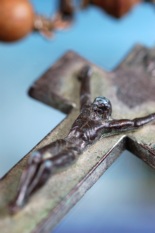Expert Help for OCD
Take Your Life Back from OCD
Offering expert treatment for all types of OCD, including unwanted obsessional thoughts. Our OCD treatment program is typically 10 weeks. We offer twice-weekly sessions, groups, and intensive programs. Intensive program can be in person or online. Low cost options available. Contact us...
Behavioral Wellness Clinic
392 Merrow Rd, Suite E,
Tolland, CT 06084
Office: (860) 830-7838
OCDTYPES
Obsessive-compulsive disorder comes in many forms
Top 7 Myths About OCD
What you never knew about obsessive-compulsive disorder
1. Neat and Tidy
Myth: People with OCD are neat and tidy.
Fact: The stereotype about OCD is that people with the disorder are just very neat and organized individuals, who are tidy to a fault. This is not OCD, and in actuality, nothing could be further from the truth. Although many people with OCD wash because they are concerned about dirt and germs, being tidy is actually not a typical symptom of the disorder. In fact, up to two-thirds of people with OCD are also hoarders, which means that they accumulate so many unneeded items that the junk gets in the way of living space.
2. Just Obsessions
Myth: Many people with OCD are "pure-O," which means they have no compulsions.
Fact: Nearly everyone with OCD has both obsessions and compulsions. Some people have mostly mental compulsions, such as mental counting or mental list-making or silent prayers. Some have covert means of checking, such as examining vital signs for any hints of illness. These types of compulsions can give the illusion of someone with only obsessions.
3. Brain Scan Needed
Myth: OCD can be diagnosed with a brain scan.
Fact: PET scans have been used in research to illustrate the differences in brain activity between people with and without OCD. However, this is not a reliable method of making a diagnosis of OCD. The disorder is diagnosed with an interview by mental health professional with experience in OCD.
4. Gay OCD
Myth: There's no such thing as HOCD (homosexual OCD) or gay OCD.
Fact: People with OCD may obsess about any number of problems, including sexual matters. Sexual orientation is an important part a person's identity, and thus is vulnerable as a target for the OCD. It is sometimes called HOCD or SO-OCD, and has been described in the scientific research literature.
5. Troubled Childhood
Myth: OCD behavior is caused by a troubled childhood.
Fact: OCD is caused by a combination of factors, including genetics and experience.
6. Mental Conflicts
Myth: OCD is the expression of subconscious conflicts.
Fact: It was believed by early psychologists that problems like OCD were caused by difficulty toilet training. Even today, many dynamically-trained therapists will attempt to interpret the meaning of OCD obsessions, but this is not useful.

7. Religion & Compulsion
Myth: Religion makes people compulsive.
Fact: Although many religions involve rituals, these are not symptoms of OCD nor are they able to cause OCD. People from orthodox religious groups are no more likely to have OCD than non-religious people. The form the OCD takes is related to important life issues so religious individuals may have OCD symptoms related to their faith, but by no means did the religion cause the OCD.
Scientific Reference
Gillihan, S. J., Williams, M. T., Malcoun, E., Yadin, E., & Foa, E. B. (2012). Common Pitfalls in Exposure and Ritual Prevention (Ex/RP) for OCD. Journal of Obsessive-Compulsive & Related Disorders, 1(4), 251-257. doi: 10.1016/j.jocrd.2012.05.002

